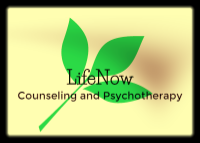Being in the field of counseling, EMDR is well known to have a high efficacy in treatment of anxiety, depression and trauma. However, in talking with people outside of the psychology and counseling field I've found not many people know what it is. In light of this I thought I'd provide some information to help educate individuals.
First, what is EMDR? Eye Movement Desensitization Reprocessing. Okay, next question - what does that mean and how does it work? EMDR can be thought of as a physiologically based therapy that assist a person see disturbing memories in a new and less distressing way. The premise is that EMDR appears to have a direct affect on brain information processing. As the memories are recalled they are disrupted in the present using BLS (bilateral stimulation), which is very similar to REM (rapid eye movement) while we sleep. The foundation is built on the Adaptive Information Processing (AIP) model. Simplified, trauma or disturbing memories are stored in what is termed a "isolated neural network" that is separate from the rest of our integrated memory networks. In this "isolated neural network" the memories lack links and connections to the rest of our brain. This means that disturbing memories are left unprocessed. EMDR processes these isolated memories after they are identified and then integrates them into the rest of our network system - brain. Like I said earlier, it's a simplified explanation of how EMDR works.
If you'd like to learn more, here are some links:
News & Press - EMDRIA http://www.emdria.org/news/
What is Bilateral Stimualtion? https://anxietyreleaseapp.com/what-is-bilateral-stimulation/

